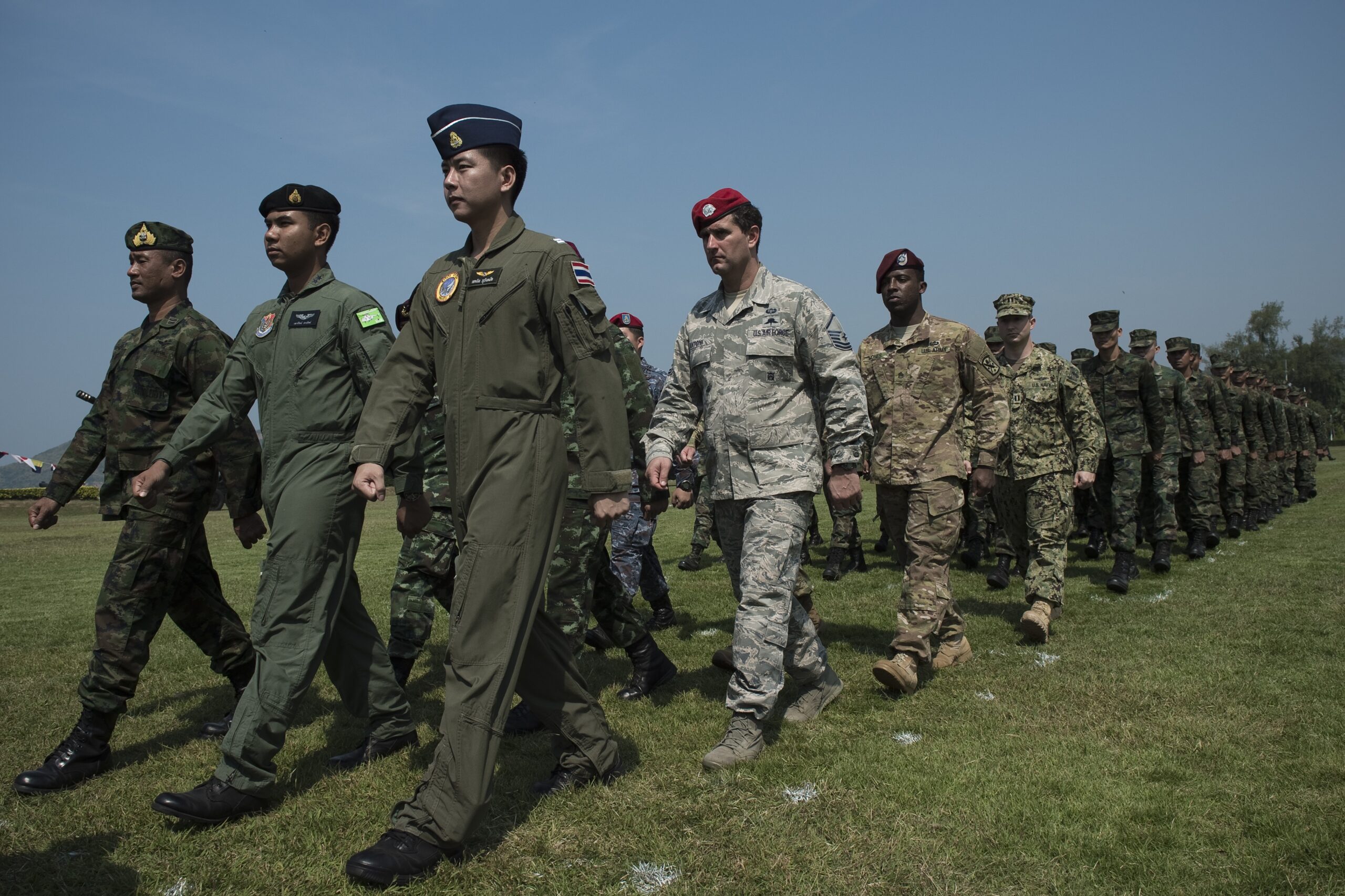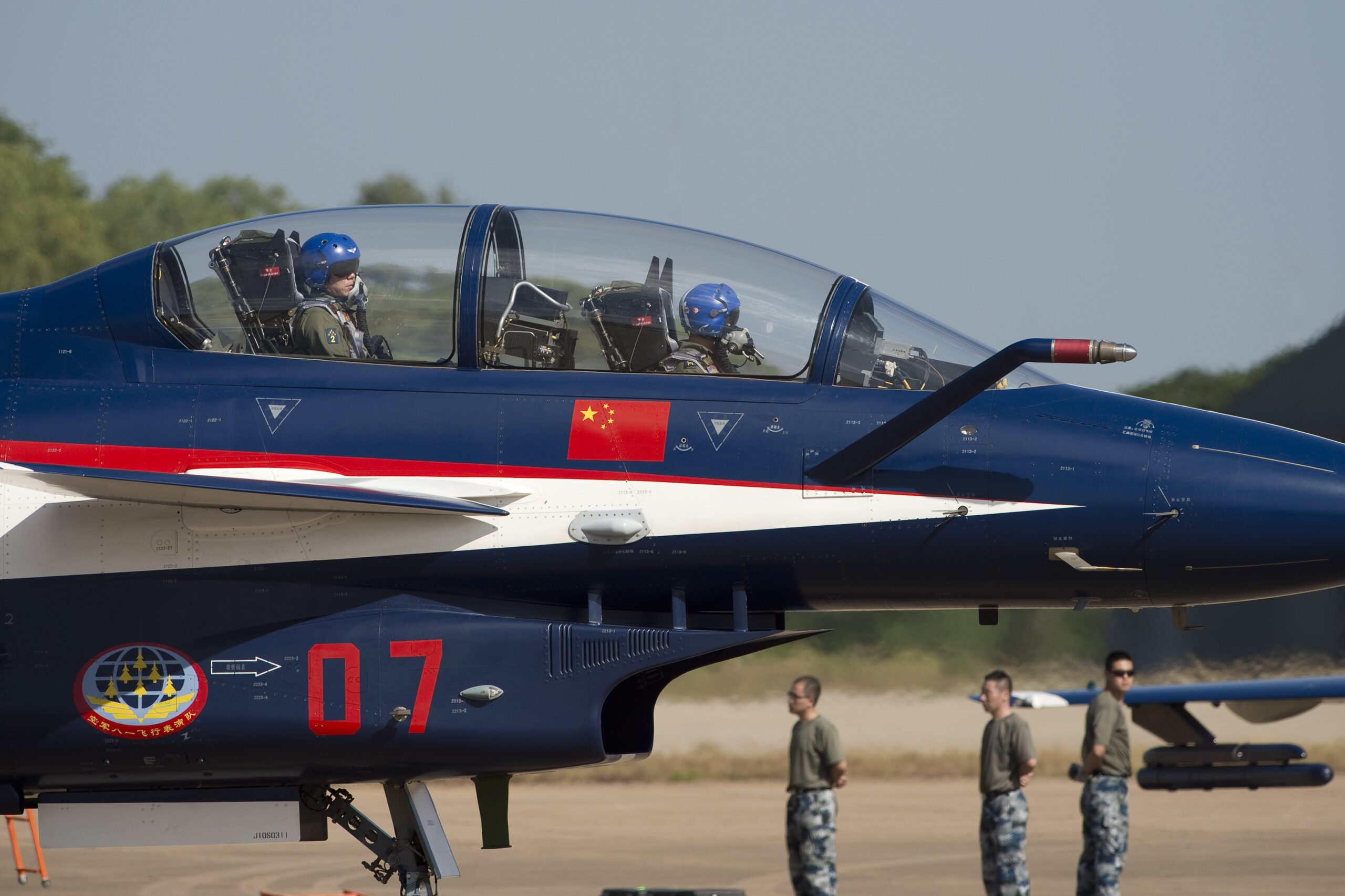Thailand’s foreign policy is famous for “bending in the wind” like bamboo, moving from side to side as it positions itself between China and the United States. Shawn W. Crispin, a highly-respected Southeast Asia observer and journalist recently commented in the Asia Times on Thailand’s latest tilt back toward the United States, citing in part Bangkok’s defiance of China in joining the U.S.-led Indo-Pacific Economic Framework (IPEF) and Thai resistance to completing a train project that would connect Thailand to China via Laos.
However, assumptions of Bangkok’s perceived defiance of China are premature.
In Thailand’s recent pursuit of military modernisation, it has attempted to purchase a Yuan-class S-26T submarine from China for roughly $400 million. But the submarine deal was made only after rejecting competing offers from South Korea and Germany.
The submarine deal ran into problems when the German-made engines that the Royal Thai Navy wanted were rejected because Germany refused, citing a European Union arms embargo. The idea that Thailand was standing up to China by demanding that the original agreement be honoured is far-fetched.
After Thailand rejected a Chinese proposal to sell the Thai navy two used Yuan-class submarines instead of the brand new one, it appears that it may have caved to Chinese pressure, as Beijing has offered an alternative engine that could be to the Thai Navy’s liking.
The reality is that when it comes to defence, Thailand has a history of preferring Chinese equipment. While the Royal Thai Air Force has clumsily pursued American F-35 fighter jets, there’s no guarantee that Thai pilots are trained to fly them. Considering Thailand’s closeness with China, there are fears among some in the U.S. government that sensitive technologies may fall into Chinese hands.
When the Royal Thai Army wanted to replace their ageing American made tanks in February 2016, it eventually decided on Chinese NORINCO-made VT4s after cancelling orders for Ukrainian-made main battle tanks. China has also supplied Thailand with armoured personnel carriers (APCs), and an amphibious transport dock back in 2019.

Thailand’s foreign policy may bend, but it does not bend so quickly.
Longer term trends must also be accounted for. After the 2014 coup, which overthrew the democratically-elected government of Yingluck Shinawatra, the United States under the Obama administration, sanctioned Thailand for uprooting Thai democracy. This deterioration in the U.S.-Thai relationship compelled the ruling military junta to seek closer ties with China.
It’s clear the United States has been concerned about its dwindling influence over Thailand. But it’s a partially self-inflicted wound as a result of a lack of engagement following the 2014 coup and broader American absence from the region.
U.S. President Biden attempted earlier this year to boost bilateral ties by sending Defence Secretary Lloyd Austin to Thailand just after the Shangri-La Dialogue in Singapore, but it remains to be seen if those high-level diplomatic visits have had an effect.
As defence cooperation in recent years, notably the annual U.S.-Thai co-sponsored Cobra Gold military drills have dropped in participation, Thailand’s armed forces have increased bilateral military exercises with the People’s Liberation Army.
Thailand and China also recently kicked off the “Falcon Strike” joint air exercises, even after Chinese military activity in the Taiwan Strait made many Southeast Asian countries nervous.

Yet defence is not the only area where Thailand’s preference of China can be seen.
The World Uyghur Congress, an organisation that represents the interests of the Uyghur people (which includes part of the Chinese province of Xinjiang) called for the release of several Uyghurs held by the Thai government in early July.
In conjunction with several Thai and international organisations, they petitioned the Foreign Affairs Committee in Thai Parliament to seek some assurance that the 56 detained Uyghurs would not be sent back to China. The plea came on the seventh anniversary of the deportation of 100 Uyghurs in 2015, which was roundly condemned by the United States.
There was tremendous pressure on Thailand on multiple fronts at that time. But Beijing increased its diplomatic pressure, while the United Nations Refugee Agency (UNHCR) urged Prayut to use caution, noting that a decision on the status of group members should be made in keeping with international law.
Prayut complied with China’s wishes, despite pressure from Turkey and the United States. Thailand’s appeasement of Beijing likely caused short-term damage to its internal security, as a bomb later exploded at the Erawan Shrine in central Bangkok, killing 20 people and injuring more than 120. Prayut called the bombing “the worst ever” attack on Thailand.
As international organisations and civil society press Prayut on Uyghurs still being detained, there is little to suggest that Thailand’s accommodation of China, as well as its tendency to defer to China in the interests of self-preservation on issues of national security, won’t continue.
Sometimes, Thailand’s domestic political interests pull it toward China like a magnet.
This was the case in the deportation of Hong Kong democratic activist Joshua Wong, who had come to Thailand in 2016 to take part in a 40th anniversary forum on 6 October, 1976 Thammasat University massacre.
Colonel Pruthipong Prayoonsiri, who was the deputy commander of the Suvarnabhumi Airport Immigration Office, verified that China had asked for the cooperation of the Thai government in refusing entry to Wong.
Prayut addressed Wong’s eventual deportation, saying that it was “China’s issue,” and that he was aware Wong had been active in resistance movements against other foreign governments. He added that if such actions were taken within Thailand, they could eventually affect Thailand’s relations with other nations, heavily alluding to China.
While clearly there are issues with Beijing that roil the Thai public, such as China’s sub-standard quality Covid-19 vaccine Sinovac, this was partially an issue of the government’s own making. Some of Thailand’s defiance of China can be explained, such as its joining of the IPEF, as Thailand had nothing to lose by joining.
The United States could have pitched their Indo-Pacific partners by creating a pathway to U.S. markets. Some state manoeuvres happen independently of China-U.S. rivalry, such as Prayut’s later interest in additional Japanese investment in electric vehicles. It seems that the Siamese proverb that describes Thailand’s foreign policy as “bending with the wind” is now less applicable. The Kingdom’s authoritarian tendencies, as well as its burgeoning economic linkages with China, pull it deeper into China’s orbit.
China has been Thailand’s largest trading partner for many years, surpassing Japan in 2014. With its economic infrastructure projects, intricately linked to China’s Belt and Road Initiative (BRI), it will draw Thailand further in. For now and for the foreseeable future, Thailand’s foreign policy will remain bent toward Beijing.


